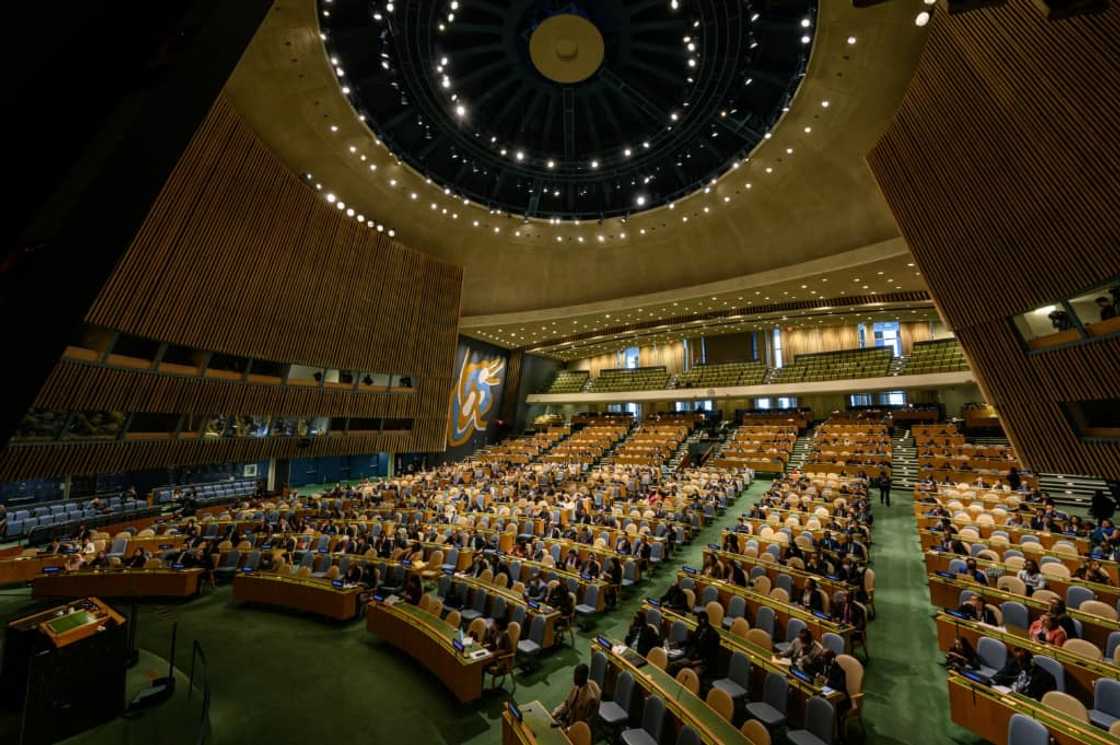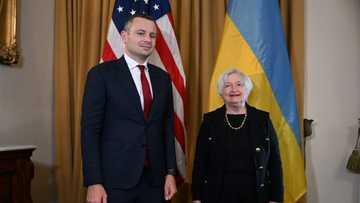UN General Assembly condemns Russia 'illegal annexation' of Ukraine land

Source: AFP
PAY ATTENTION: Click “See First” under the “Following” tab to see Briefly News on your News Feed!
The United Nations General Assembly on Wednesday overwhelmingly voted to condemn Russia's annexation of parts of Ukraine after Moscow vetoed a similar effort in the Security Council.
The General Assembly approved the resolution with 143 in favor and five against but 35 nations abstained including China, India, South Africa and Pakistan despite a major US diplomatic effort to seek clearer condemnation of Moscow.
The resolution "condemns the organization by the Russian Federation of so-called referendums within the internationally recognized borders of Ukraine" and "the attempted illegal annexation" announced last month of four regions by President Vladimir Putin.
It calls on all UN agencies and international agencies not to recognize any changes announced by Russia to borders and demands that Moscow "immediately and unconditionally reverse" its decisions.
The US ambassador to the United Nations, Linda Thomas-Greenfield, had urged all nations to send a message that the world "will not tolerate seizing a neighbor's land by force."
"Today it is Russia invading Ukraine. But tomorrow it could be another nation whose territory is violated. It could be you. You could be next. What would you expect from this chamber?" she said.
PAY ATTENTION: Follow us on Instagram - get the most important news directly in your favourite app!
The United States had put special energy into seeking to persuade South Africa and especially India, a growing US partner which has a historically close relationship with Russia and also abstained in the Security Council, where it holds a non-permanent seat.
The final vote was largely the same, with a net two more votes against Russia than in March when the General Assembly condemned the initial invasion of Ukraine.
Bangladesh, Iraq and Senegal -- which abstained in March -- on Wednesday voted to condemn Russia.
Eritrea, one of the world's most closed states, moved from a 'no' to an abstention while Nicaragua, under growing international pressure over human rights, switched from abstaining to voting 'no' alongside only Russia, Belarus, North Korea and Syria.
Source: AFP


